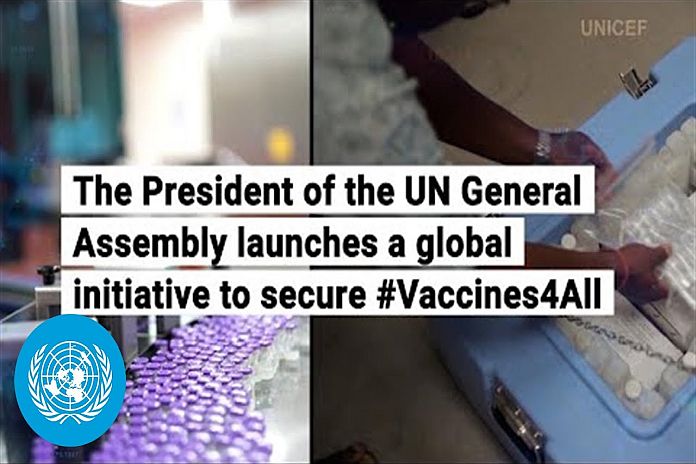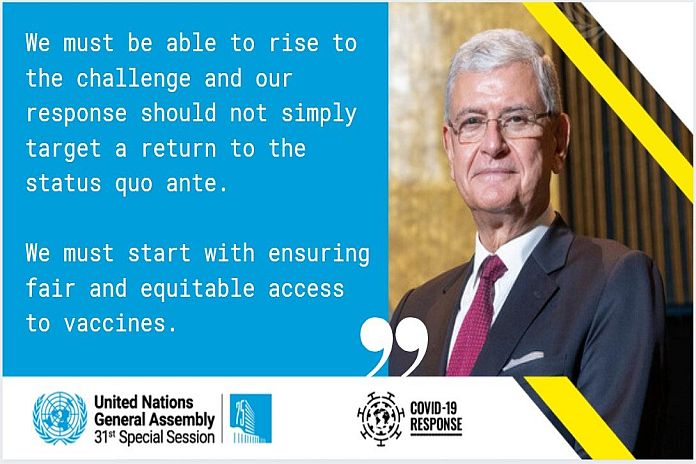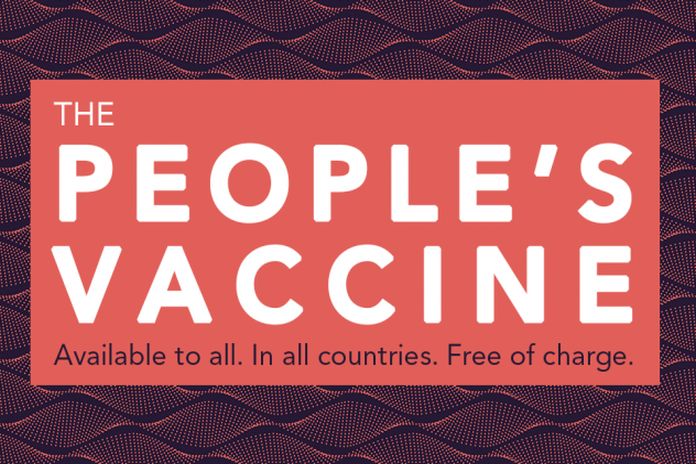By Caribbean News Global ![]()
TORONTO, Canada – Scientists, manufactures, heads of agencies, governments and other stakeholders, have commenced interactive dialogues, on the road to #Vaccines4All by the end of 2021. There seems no other option. OECS – CARICOM Member States must gear-up: #Vaccines4All. Achieving this goal is an established dimension that will have to be achieved globally.
UN deputy secretary-general Amina Mohammed outlined Friday: “UN support to countries [193 UN Member States ] going forward, including mobilizing the $28 billion needed to secure vaccines for all, regardless of wealth or location, and assisting authorities everywhere to operationalize inclusive recovery plans.”
World Health Organisation (WHO) director-general Tedros Adhanom Ghebreyesus said, these nations have proved the efficacy of “science, solidarity and sacrifice”, he stated, “But where science is drowned out by conspiracy theories, where solidarity is undermined by division, where sacrifice is substituted with self-interest, the virus thrives. The virus spreads”.
Critical decisions of health, humanitarian response and addressing the socio-economic impacts of the crisis are ongoing concerns to the dignity of life. There is also a focus on the ‘morality needed at the forefront of COVID recovery’ that illustrates, “science, medicine and economics are going to all play important roles in the global post-pandemic recovery, but from the Church’s point of view there needs to be a moral recovery first, Cardinal Michael Czerny explained in a November 27 address at Tokyo’s Sophia University.”
“We will not exit from it (COVID-19) better if we fall back into the temptation of individualism, whether personal or collective, often expressed in the form of political nationalisms and narrow economic interests,” the Canadian cardinal told students and faculty at the Jesuit university.
“The prescription offered by Pope Francis unleashes the ‘antibodies of justice, charity and solidarity,’ ” Czerny said. “We must reject the ruinous ideologies of indifference, invisibility and individualism,” Czerny said. “We must not foster divisions. We must not be hypocrites. We must reject an economic model based on greed, zeal for-profit and instant gratification. We must put people first, rejecting purely technocratic solutions. Individual states acting alone cannot implement adequate solutions.”

While many are optimistic of the COVID-19 vaccine, infection rates in metropolitan countries that the Caribbean islands depend on for economic viability, tourism, trade and commerce continue to experience enormous pressure.
According to WHO director-general Ghebreyesus last Friday: “The pandemic still has a long away to run and decisions made by leaders and citizens in the coming days will determine both the course of the virus in the short-term and when this pandemic will ultimately end”.
A digital health pass is expected to support the safe reopening of borders and air transportation accompanied by a roll-out of vaccines on the population of participating countries and economies.
New research by the Eurasia Group, has found that the economic benefits of a global equitable vaccine solution alone for just 10 high-income countries, would be at least US $153 billion in 2020-21, rising to US $466 billion by 2025.
Cuba has four vaccine candidates: Soberana 01, Soberana 02, Abadala and Mambisa
As regional governments are preparing to roll-out the vaccines – procurement, distribution and coordination are huge challenges. Essential questions relate to; when will the OECS and CARICOM Member States receive the vaccines; what type of vaccines and how many doses will be purchased?
This follows a cold chain logistics and a strategy to inoculate the entire population. In addition to a health education plan, communication and public relations strategy are indispensable.
“Effective and rapid distribution of the vaccines as they reach final approvals is one of the most critical elements in containing the virus,” said Rob Walpole, vice president – Delta Cargo. “That’s why we created a vaccine task force months ago charged with understanding requirements and working with healthcare and pharmaceutical experts, building scalable solutions to support the industry. After successfully shipping test vaccines throughout the summer and fall, we are confident in our capability and stand ready to help ensure approved vaccines are broadly distributed.”
Barbados, minister of health and wellness, Lieutenant Colonel Jeffrey Bostic, said: “We have started the process of developing the mechanisms to be able to deal with the execution now of the delivery of vaccines when they become available. That in itself is a massive undertaking requiring a lot of planning. A lot of logistics and also a lot of communications with the public to be able to get persons in Barbados to understand the importance of taking the vaccine.
“And we are not doing this blindly, because we have a very proud history of executing a very efficient and effective immunisation programme in this country for decades, which really has redounded to the benefit of young Barbadians who are now adults, and we will continue to operate in that vein, with the delivery of the COVID vaccine.”
Antigua and Barbuda through the COVACS arrangement has already paid for 20,000 vials of vaccine, although it has not yet been decided which of the vaccines is likely to be purchased by the Pan American Health Organization for distribution to its members.
Saint Lucia’s chief medical officer, Dr Sharon Belmar George referenced, June 4, 2020: “The Global Vaccine Summit, GAVI launched the COVID-19 Vaccines Advance Market Commitment (COVAX AMC) with the goal to ensure rapid but nonetheless equitable access to safe, effective COVID-19 vaccines to all countries, regardless of income level, developmental status, or population size.
“Saint Lucia, along with Dominica, Grenada, Haiti, St Vincent and the Grenadines and Guyana are part of the 6 AMC CARICOM countries within our region. To fulfill the commitment to fair and equitable access, GAVI is presently fundraising to finance the costs of at least 1 billion COVID-19 vaccine doses, which are fully subsidized donor-funded doses to ensure lower income countries are not left behind. They seek to cover about 20 percent of the population of these six countries to make a real impact towards reducing spread of the pandemic,” she added. “We intend to monitor closely the use of the vaccine in the developed countries commencing this month to gain some insight of factors which supported its roll-out, barriers and any key lessons learnt which can be applied to our country.”

UN secretary-general António Guterres last Friday underlined the need to make COVID-19 vaccines “a global public good”, affordable and available to all, through the COVAX Facility: a global mechanism which aims to deliver two billion doses by the end of 2021.
“So far, some 189 countries are engaged in COVAX, which is led by Gavi, the Vaccine Alliance; the Coalition for Epidemic Preparedness Innovations (CEPI), and WHO.”
“What we see is that this can only work as a global effort, and as a relentless collaboration. If everybody was doing bilateral deals, it would be very hard to make sure the supplies exist for everyone,” he stated.
PAHO/WHO representative to Barbados and the Eastern Caribbean countries, Dr Yitades Gebre, has announced that it will be hosting a special session of its governing body, on Thursday, December 10, and the institution will be advocating for flat pricing, and equitable access to the COVID-19 vaccine.
“PAHO estimates that for a typical country in the Latin America and the Caribbean the initial cost burden of the new COVID-19 vaccine is likely to be 12 times more than the annual national immunisation budget, just to acquire the vaccine for 20 percent of their total population.
“For those considered at highest risk in 2021, countries in the region will need to invest three times their current annual immunisation budgets. To this end, the affordability of the future COVID-19 vaccines will be critical,” Dr Gebre emphasised.
Amidst plausible fears, OECS and CARICOM Member States will have to get ready for #vaccines4all. Being “broke” or “we have no more money” will have to make sure funding for vaccines is not an obstacle to addressing the socio-economic impacts of COVID-19.






